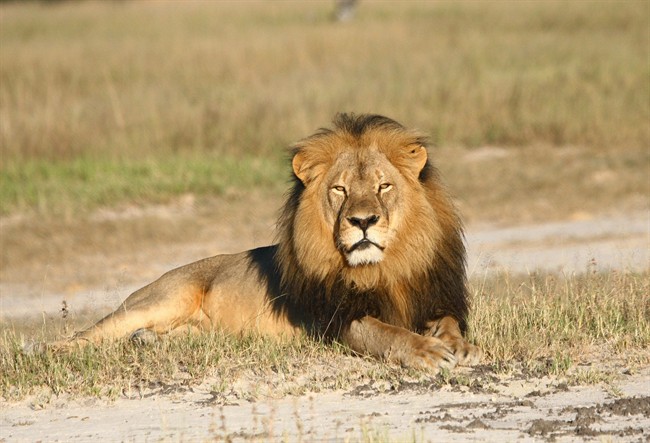More than a year after public outrage over the illegal hunting of Cecil the Lion, a study has emerged claiming trophy hunting is beneficial to the conservation of lions in Tanzania.

READ MORE: African reserve where Cecil the lion lived may have to kill 200 lions due to overpopulation
In what could be a controversial study, the researchers from the University of Kent’s Durrell Institute of Conservation and Ecology (DICE) in the United Kingdom, concluded that specific hunting of lions can aid not only in the conservation of the species, but also aid in the conservation of land.
WATCH: Controversy over hunting of Cecil the lion
The researchers specifically studied lion trends in Tanzania’s Selous Game Reserve, where the grounds are divided into blocks with different tourism companies holding various hunting rights.
Hunting in the park operates on both long-term (10 years or longer) and short-term allocations of hunting areas to companies.
About 35 per cent of Tanzania’s land is protected. However, on that land — except parts that are designated a National Park as well as the Ngorongoro Conservation Area — trophy hunting is allowed. This accounts for some 305,000 square kilometres or 86 per cent of protected land.
What they found was blocks with short-term allocations were detrimental to lions, as the kings of the jungle were over-hunted. However, the long term allocation areas were found to be sustainable.
READ MORE: Protest at African Hunting Expo in Calgary to stop trophy hunting
The reason for the contrast, the researchers concluded, was that companies with long-term allocations managed them better due to long-term outlook.
While trophy hunting may be distasteful for some people, this isn’t the first time it’s been claimed that such practices can aid in conservation: some have cited the need for trophy hunting to help fund conservation efforts.
In a National Geographic opinion piece, Melissa Simpson, director of the Safari Club International Foundation wrote,“As with the regulated hunters in the United States, the regulated hunters in Africa make a vital contribution to conservation efforts, primarily through the revenues their hunting expeditions generate for local communities and wildlife resource agencies.”
Another argument for trophy hunting is that the practice helps conserve natural land that might otherwise be used for agricultural means.



Comments